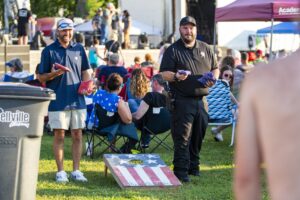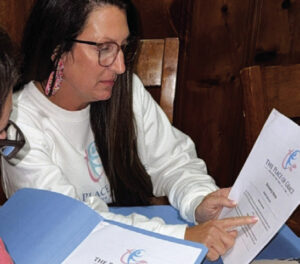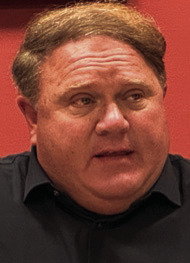Judicial elections: System broken, badly in need of repair
By Staff
March 14, 2001
In the wake of the nasty round of judicial campaigns in Mississippi last fall, much has been made of the $1 million spent by the U.S. Chamber of Commerce on "issue education" ads broadcast in those races that supported incumbent Mississippi Supreme Court justice Lenore Prather, Kay Cobb, Jim Smith and challenger Keith Starrett.
One prominent Mississippi political columnist roundly praised Secretary of State Eric Clark and Attorney General Mike Moore for their efforts to force the U.S. Chamber to comply with Mississippi campaign finance reporting laws.
That columnist whose son is a trial lawyer neck deep in making huge campaign contributions to candidates perceived as friendly to trial lawyers conveniently developed a case of political amnesia when it came time to balance the role the $1 million in U.S. Chamber spending in the judicial races played against the $1.4 million contributed to judicial candidates Chuck Easley, Percy Lynchard, Frank Vollor, Oliver Diaz , Billy Joe Landrum and David Chandler by attorneys, attorney family members and attorney employees.
Hand-picked
What makes that reality even more interesting is the fact that the majority of the state's trial lawyers who are contributing the really big bucks in state campaigns include those who profited most from the state's multi-million-dollar tobacco litigation a group of lawyers hand-picked by Moore.
Clark, the state official charged with enforcing campaign finance law compliance, is the recipient of at least $88,000 from trial lawyers in his own campaign coffers. Moore's political and campaign finance relationship with lead tobacco attorney Richard "Dickie" Scruggs of Pascagoula is well-documented.
Bottom line, the Mississippi Democratic Party and many of the party's leading candidates were rescued from the political poorhouse in recent years in great measure by contributions from trial lawyers. Those same trial lawyers have made no secret of their intent to finance legally the election of a state supreme court and a state Legislature friendly to trial lawyers, who make their livings suing the business and industrial community and the insurance companies which represent them.
The role of the trial lawyer funded political action committee ICE PAC in the 1999 general elections in Mississippi has already been well documented.
Abuses
Clearly n to the contrary of the views offered by some in the media in the hip pockets of the trial lawyers there exists abuse on both sides of the ideological fence.
Business interests are trying hard to elect judges and lawmakers who lean toward the business community and hence against judicial philosophies and legislation that make it easier for plaintiffs to sue businesses for damages. It's a matter of self-preservation.
Trial lawyers whine rather loudly about protecting the interests of "the little man" in court but the fact that most of them take a third of the little man's winnings in litigation suggests that the Mississippi Trial Lawyers Association and many of their members aren't as altruistic as they'd have us believe.
Such opinions about the trial lawyers become even more embedded in the minds of the business community when certain trial lawyers plaster billboards, telephone book covers and TV ads enticing potential clients into what appears to be "sweepstakes" litigation and build a sense of litigation entitlement into the general populace.
Buying influence
The Business and Industry Political Education Committee(BIPEC), the business antithesis of the MTLA, analyzed the 200 judicial races like this in a recent memo circulated to their membership 11 judicial candidates raised $3.7 million and 41 percent of that total came from lawyers who will be trying their cases in front of appellate judges.
In the Southern District State Supreme Court race the one in which the esteemed political columnist with the trial lawyer son editorially wrung his hands about how much the U.S. Chamber spent in the state's judicial races business-backed candidate Keith Starrett received $16,000 in contributions from attorneys. Opponents Oliver Diaz and Billy Joe Landrum received $429,800 and $231,964, respectively, from attorneys or a total of $661,764.
The $1 million spent by the U.S. Chamber of Commerce in the judicial races was in addition to the $3.7 million given directly to the candidates. It appears that an additional $400,000 in indirect spending in the judicial races also was made by special interests in addition to the U.S. Chamber making the price tag on the $2,000 judicial races $5.1 million.
That's obscene. The system is broken. It's getting totally out of hand.
We elected five appellate judges in 2000. The price tag on average works out to $1 million a judge. How can the people of Mississippi continue to have confidence in a system in which both business and the trial lawyers continue to exert more influence than can John Q. Citizen. To win, judicial candidates
must essentially violate the canons of judicial ethics and let special interests know their leanings on specific issues to get campaign contributions.
Retired Chief Justice Armis Hawkins made a great proposal last year. He said all contributors to judicial races should be limited to $200 each. Period.
But these campaign finance reports prove that while trial lawyers and the business community continue to exert vast influence over the election of judges, individual citizens have come to matter very little other than in their ability to be herded toward a particular candidate through the manipulation of television advertising paid for by the special interests on both sides of the spectrum.
When a media voice tells you that the business community is evil for dabbling in judicial politics while giving the trial lawyers a pass on the huge donations they make to the judges that will decide the cases they try, that voice is simply lying.
Campaign finance reform in judicial races that limit special interests of all stripes is what is required to clean up this mess.
Sid Salter is publisher/editor of the Scott County Times in Forest. E-mail him at salternews.aol.com.













